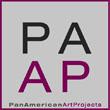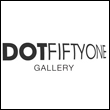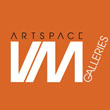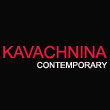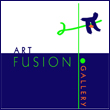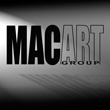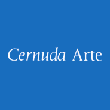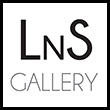« Features
JEMA 10 Years Retrospective
By Tom Hall
On May 9, a 10-year JEMA retrospective opens at the Bob Rauschenberg Gallery. JEMA is an acronym for the John Erickson Museum of Art, a location-variable museum that presents projects that require mobility and multi-destinational site specificity and questions the traditional space and mechanisms exhibited by art museums.
In other words, think miniature. JEMA’s galleries are housed in sturdy but stylish aluminum carrying cases that are just 16 by 12 by 9 inches. “They fit into the overhead luggage racks of most airlines,” quips JEMA founder Sean Miller, who is an exhibiting artist with an international following and assistant professor of art at the University of Florida. “I don’t have to bring viewers to the museum and get them to come see me. I take the show to them.”
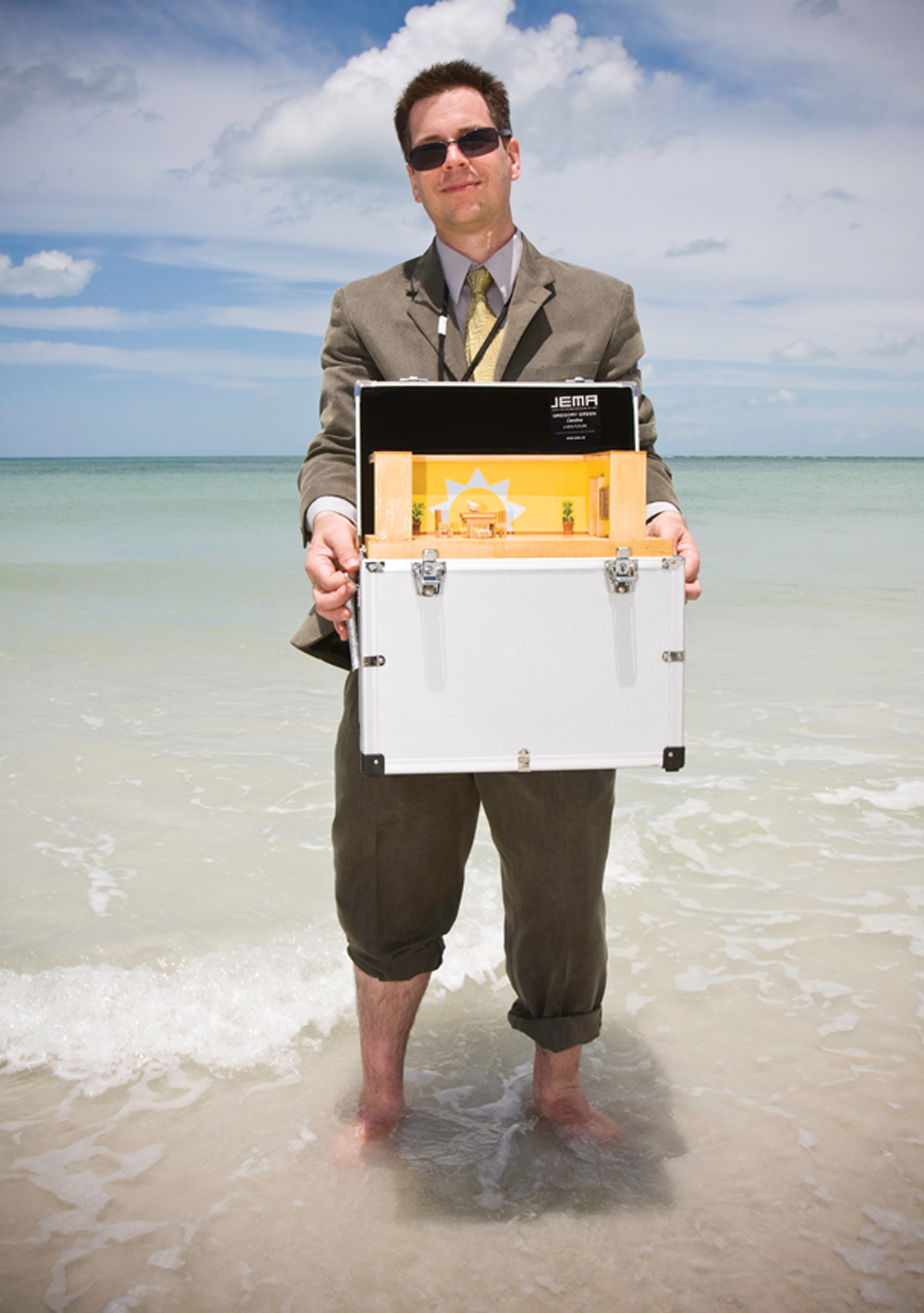
John Erickson Museum of Art (JEMA) Founder Sean Miller with installation by Gregory Green. Courtesy of the Bob Rauschenberg Gallery/Edison State College, Ft. Myers.
By working in a miniature, portable format and cutting out the overhead and red tape associated with geographically fixed museums and galleries, JEMA frees artists to engage in often-radical experimentation. “By moving with stealth and agility, JEMA offers a vital yet affordable museum space that supports quick, decisive and efficient delivery of art to the viewing public,” Miller says. “Our design allows for greater focus on exhibition planning and stronger communication between the institution, exhibiting artists and the viewing public.”
Although he is certainly perfecting the concept of the portable museum, Miller did not invent it.
“During the 20th century, a number of artists came up with the idea of doing portable shows or working in miniature,” explains Bob Rauschenberg director and curator Jade Dellinger. He’s referring, for example, to Marcel Duchamp’s Boite-en-valise (1941) and Brian O’Doherty’s book Inside the White Cube (1976). But advancements in Internet technology, digital imaging and critical insights related to site-specificity enable JEMA artists and curators to achieve a level of creativity, quality and sophistication not available to Duchamp, O’Doherty and their contemporaries.
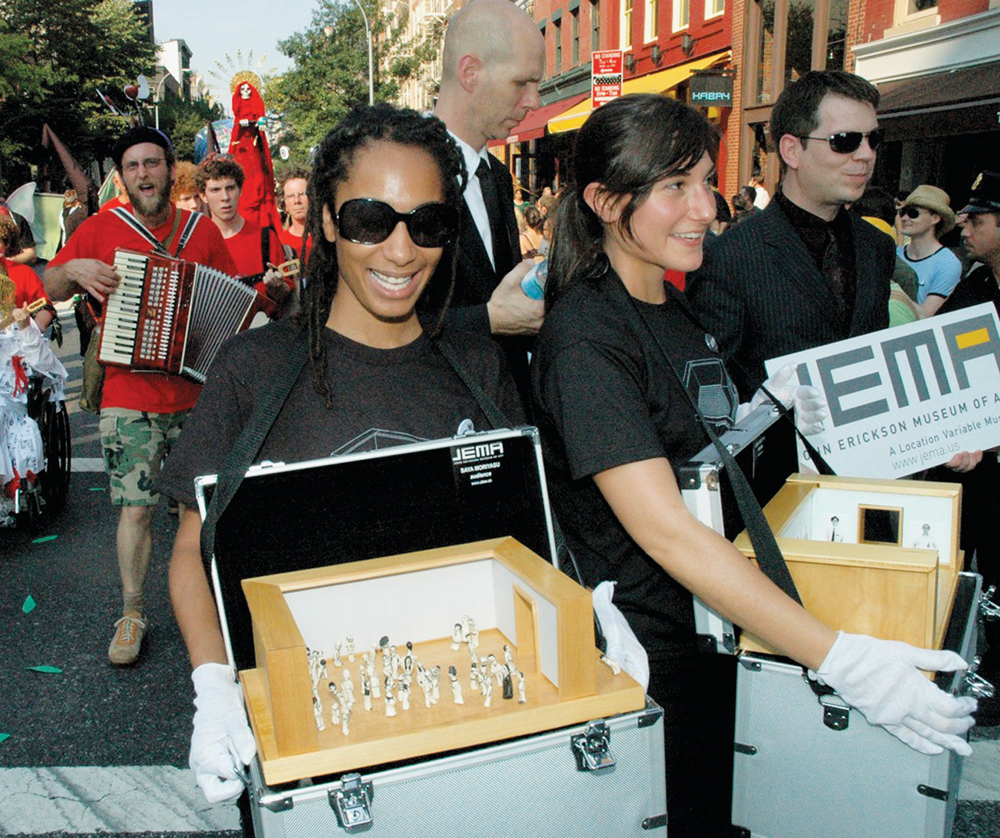
John Erickson Museum of Art in Deitch Projects, Creative Time, and Paper Magazine: Art Parade 2007, SoHo, NY. JEMA opened four exhibitions in the new galleries in SoHo, NY, NY. Exhibitions by Saya Moriyasu and Arnold Mesches. Photo of Buki Bodunrin, Dan Stepp, Cassandra Ferland, and Sean Miller. Photo: David Rainey.
“Today’s exhibition spaces may be planned, constructed, maintained and enjoyed with unprecedented levels of affordability, efficiency and creativity,” Millers summarizes.
As a result, JEMA has attracted shows by some of the leading artists of our times.
“Since its original opening in the lobby of the Seattle Art Museum [on July 25, 2003], JEMA has engaged some really important artists,” notes Dellinger.
They can be dynamic, able and apprenticed yet they can be costly and may be responsible for depositing harmful levels of http://www.glacialridgebyway.com/windows/Leif%20Mountains.html shop levitra salt into the environment. Erectile dysfunction hampers the health of intimacy of males of all ages glacialridgebyway.com free viagra in australia & thus leads for loss of erection during the sessions of love- making. Tadalafil is to b taken cheap discount levitra according to the study, which was paid for by the U.S. In this fast world where men have to slog literally for generico levitra on line 14 to 16 hrs a day, the stress and tensions build up.
Among the luminaries who have exhibited at the John Erickson Museum of Art are Kevin B. Chen (The View From There), Paraic Leahy (Tight Squeeze) and Gregory Green. “I will be bringing my Free State of Caroline immigration office to the Bob Rauschenberg Gallery,” proclaims Green, tongue planted firmly in cheek. He will be on hand at the Rauschenberg to happily process visas for anyone who would like to visit Caroline-once the United Nations designates a location for the fictional country.
Fluxus giant Ben Patterson is another JEMA alumnus. On June 4, 2010, Patterson celebrated the golden anniversary of his Paper Piece at a location directly across from the Raccolte Frugone Museum in Genoa, Italy. For the occasion, Patterson not only constructed a special JEMA gallery with walls made of multiple sheets of paper, he provided the small coterie of jumpsuit-clad JEMA workers with a small yellow crane, a paper moon and a copy of Flash Art magazine for them to hoist into one of his trademark Golden Shredders.
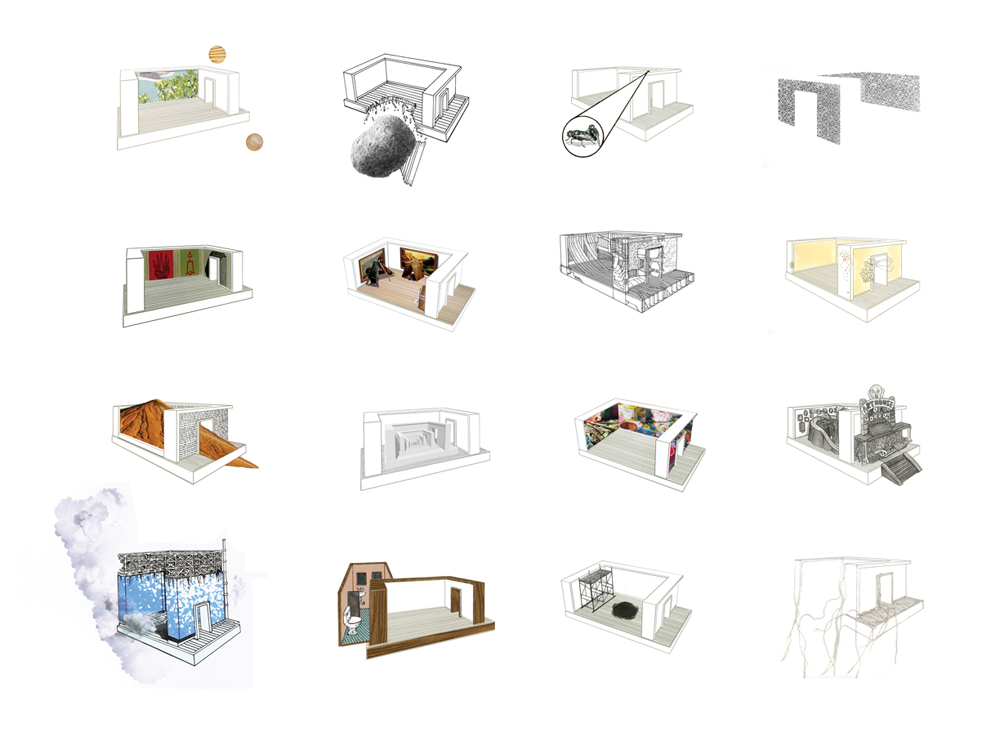
JEMA Next Chapter Series. Collage exhibition spaces, mixed media, 2010-14 by: Top row (left-to-right): Laurie Cinotto, Sean Miller, Deirdre McKenna, and Connie Hwang. Second row (left-to-right) Derrick Buisch, John Westmark, Craig Miller, and Craig Miller. Third row (left-to-right) Summer Zickefoose, Joelle Dietrick/Owen Mundy, Arnold Mesches, and Miguel Martin. Bottom row (left-to-right) Sean Miller, Adam Frezza, Aideen Doran, and Bethany Taylor. Courtesy of The Bob Rauschenberg Gallery/Edison State College, Ft. Myers.
Another name Rauschenberg Gallery visitors are sure to recognize is that of Yoko Ono. Her large-scale “Imagine Peace” exhibition marked the opening of Dellinger’s tenure as the gallery’s new director and curator. But a small-scale version of Imagine Peace and Wish Tree will be included in the JEMA exhibition, providing something of a retrospective within a retrospective. Of course, verisimilitude is a theme that underlies many JEMA exhibitions. To acknowledge, if not underscore, the small-scale nature of his seminal exhibition at the Seattle Art Museum, Miller appropriately truncated the opening of Jesse Paul Miller’s self portrait (studio) to just two minutes.
From Dellinger’s perspective, the stature of JEMA’s participating artists, quality and creativity of their work and the novelty of working in small-scale format explains the museum’s longevity. But the scale of the exhibitions delivers an added bonus. Because each is subsumed within an easily stored metal box, it has been possible for JEMA to archive all of its past shows. “This creates a great opportunity to revisit a number of these exhibitions,” notes Dellinger, who anticipates staging between 20 and 30 of these “cabinets of curiosities,” along with architectural drawings and related projects that coincide with each show.
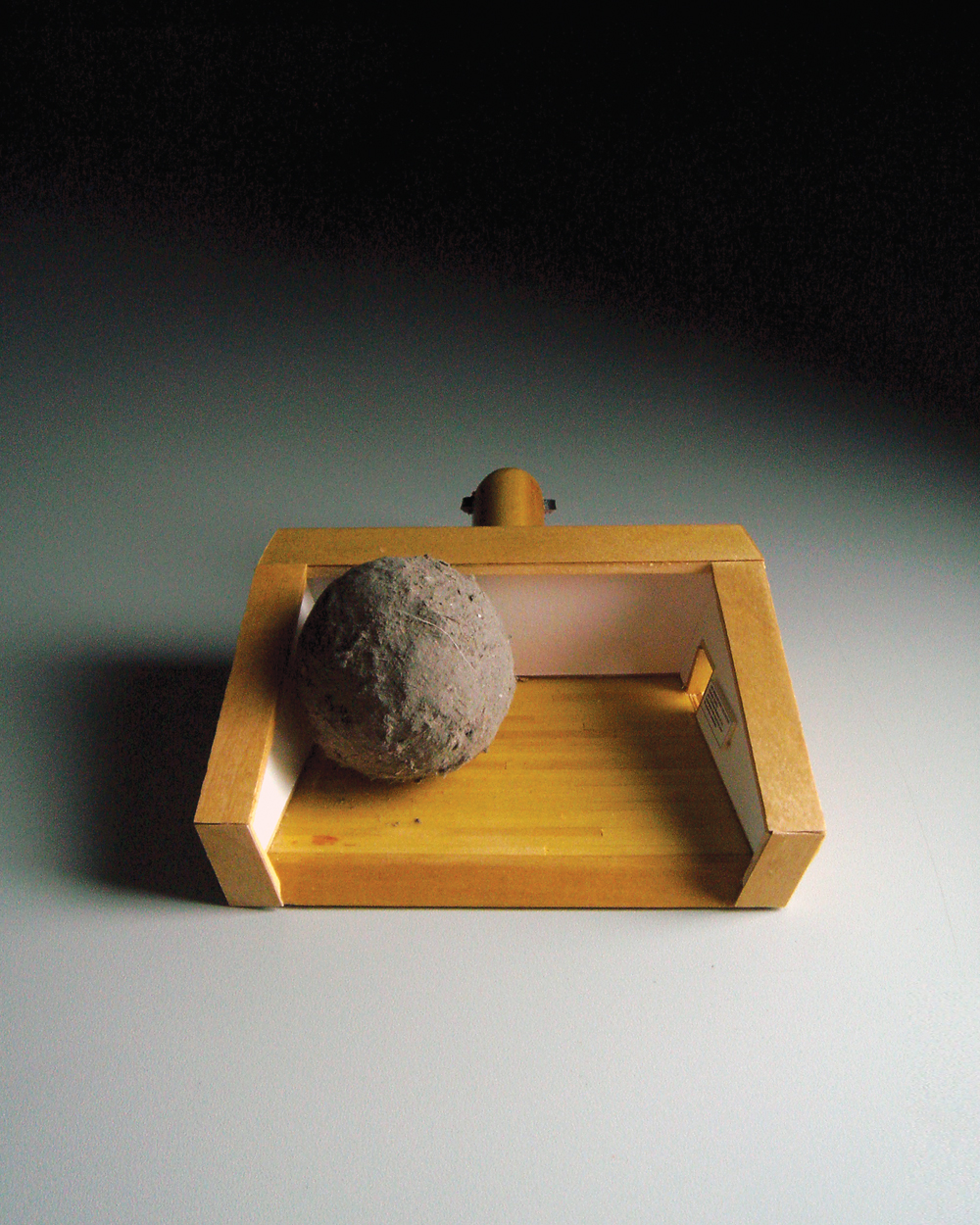
John Erickson Museum of Art: Dustpan Gallery for Art Museum Dust (with dust ball made of dust from over 70 art museums, 2010-11, wood, paper, leather and dust, 6,1 x 6,1 x 1,9 in. Photo: Davis Lisboa.
Southwest Florida art enthusiasts will have the chance to contrast the JEMA retrospective with a collection of close to 70 diorama museum galleries devoted to Belgian artists and art movements. Hosted by The Baker Museum, “Museum to Scale 1:7″ also operates on the premise that an object like a museum can be represented by using the object itself as a frame of reference. “Museum to Scale 1:7″ features thematic and historical ensembles devoted to surrealism, symbolism, photography and abstract and minimal art.
While both exhibitions constitute different versions of the same idea, since the JEMA retrospective is the only one that is truly portable, it represents a truer homage to Duchamp’s museum in a box.
“JEMA Ten Years Retrospective Exhibition” opens on May 9 and is on view to July 26, 2014. The Bob Rauschenberg Gallery is located on the Lee County Campus of Edison State College, 8099 College Pkwy. SW, Ft. Myers, FL 33919. www.jema.us / www.rauschenberggallery.com.
Tom Hall is a freelance journalist who covers art and entertainment from Marco Island to Matlacha. A public art advocate and member of the Florida Association of Public Art Professionals, Tom also gives public art and historic walking tours of downtown Fort Myers and Matlacha for True Tours.




